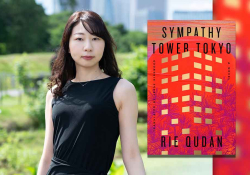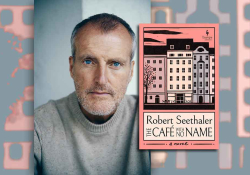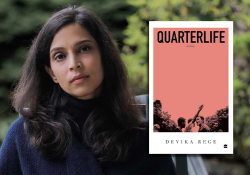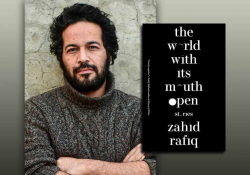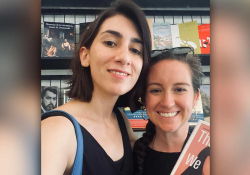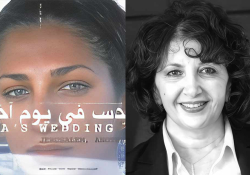8 Questions for Gabriel Bump
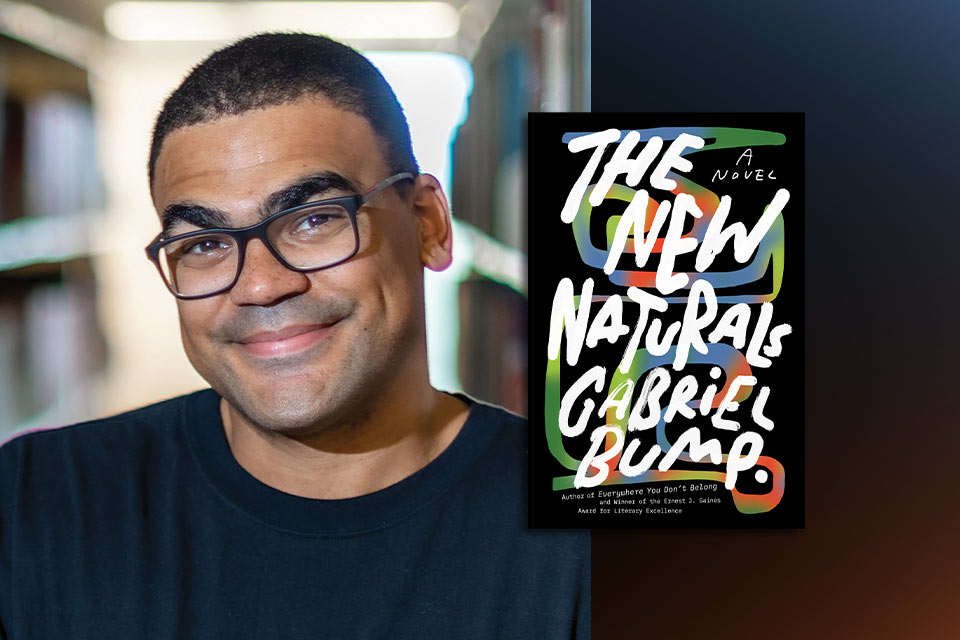
In Gabriel Bump’s second novel, The New Naturals, people are seeking safety—safety from violence but also from the perils of capitalism, unsafe drinking water, forest fires, aggressive moose, and creeping sea levels. They set off for western Massachusetts to live in an underground community supported by a wealthy benefactor—a planned utopia for all who share the vision.
Q
The New Naturals has one of the most memorable images I’ve encountered in a novel: Rio’s map. Here she marks unsafe places with red Xs. This map and her relationship to it quickly convey a lot. Do you recall how this map came to you, or how you would teach students to do something similar?
A
When I was in high school, I wrote for my high school newspaper. I wrote a few articles on gun violence in Chicago. The Chicago Police Department had an online interactive database that allowed you to represent reported crime with dots. You could turn each murder or armed robbery or jewel theft into a dot and pinpoint where it took place. That image has stuck with me. That ability to reduce events into dots. Rio’s doing an analog version of that. It’s a simple statistical exercise that is heightened by Rio’s paranoia and desperation. The power, I feel, doesn’t come from the map. Rio’s perception of the map, her need for the map, her fear and sadness, is what makes it powerful.
Q
Our traveling characters come in pairs of people who have already created their own fairly solitary worlds. I found their glimpses of the utopia within their relationships very moving. Is this where we get as close to utopia as we can, within our closest relationships?
A
I think so. Or, at least in our closest relationships, we can, and should, achieve the best version of the world. In close relationships, in order for them to work, we must work cooperatively, freely, toward peace and understanding, toward comfort and ease. My wife and I welcomed our baby boy a few months ago. Having a child will force you to notice all the imperfections in the world, all the ways your child will face danger and inequality, even if they are born into relative privilege and comfort. The only way to not allow those imperfections to suffocate you, to bring on despair, is to focus on the things you can change within your household, without your closest friendships. Of course, outside of the house, in a bigger context, you try like hell to make the world better however you see fit.
Q
Most of us engage in escape fantasies from time to time, but that’s where it ends. We get frustrated with society, we read Walden, and then we move on. What do you think compels those who don’t leave it there and instead join intentional communities, even if not under a mountain?
A
The level of desperation. At least that’s the driving force behind The New Naturals, that’s the question I’m trying to answer: what do these people at their lowest points really need? Rio and Gibraltar, for example, are disillusioned, bored, unhappy, before the death of their daughter. It’s that death, however, the size of that tragedy, that forces them under the mountain. Everyone has their own version of that breaking point.
Before I started writing this book in earnest, I went through a horrible depressive episode. Intense suicidal ideation. A bottom that wasn’t necessarily triggered by a single event. I blew up my life and moved to Buffalo, where I wrote most of this book. I reached the end of the line and needed a place to save me, or help me save myself. I guess my version of this question is: what compels a person to move to Buffalo?
Q
Late in the novel, Rio asks, “Don’t you have days when all you want to do is climb into a hole?” When you have days like that, if you do, what is your response?
A
I eat an entire big bag of flamin’ hot Cheetos or exercise for an hour or eat four pieces of good fried chicken or read a good book or write for a few hours or take my dog on a walk or, more recently, hold my son, hold my wife. Learning how to acknowledge and intercept my depression and anxiety instead of running from it, pushing it down, is still the greatest gift I have given myself. On occasion, I’ll drink two glasses of good bourbon and watch sports, although I tend to save the hard stuff for happy times only.
Q
What in popular culture has captured your attention lately?
A
Caitlin Clark and DJ Burns. I’m a Bears fan, so getting ready for Caleb Williams, watching Justin Fields leave, has taken a lot of my attention. The White Sox are back, which is simultaneously good and horrible.
Q
Where are your favorite places in Chapel Hill, North Carolina?
A
A Merritt’s BLT. Is a sandwich a place? Bolin Creek Trail. Chapel Hill Friends Meeting House. Boshamer Stadium at dusk. Polk Place. My office in Greenlaw Hall. Lantern.
Q
What are you most excited about reading at the moment? We’d love to have your recommendations.
A
Tyree Daye’s latest book of poetry, a little bump in the earth. Camille Bordas’s new novel, The Material. Both the best new books I’ve read all year. I started the year reading Finnegans Wake for the first time, along with some guides and analysis. Still reeling from that.
I’m working on a mystery novel and watching old episodes of Columbo and Poirot, reading some Elmore Leonard, trying some contemporary stuff. It’s a newish genre for me, as in I’ve read and watched a lot but haven’t tried writing a mystery before. Approaching a genre from a craft perspective is a lot different than approaching it from an entertainment perspective.
Drawing inspiration from something, for me, isn’t necessarily, saying it’s excellent. Barry Hannah’s short novels, for example, have influenced me greatly; I’m not sure if they’re any good. Craft-wise, I have loved Robert Barnard’s work. Very funny. Good sentences. Smart. Maybe a bit slow-moving for everyone. I’m reading a lot of books from Soho Press. Their crime series is terrific, filled with international gems.
Q
You grew up in South Shore, Chicago. Putting aside family and friends, what do you miss most about Chicago?
A
Italian beef, Chicago-style hot dogs, Lake Michigan, the Art Institute of Chicago, all the terrific bookstores. Outside of Chicago, places will try to sell you a Chicago-style hot dog. They will not have sport peppers. They will not have celery salt. They will not use tomato slices. They are selling you a lie.
Gabriel Bump’s debut novel, Everywhere You Don’t Belong, was a New York Times Notable Book of 2020 and won the Ernest J. Gaines Award for Literary Excellence, the Great Lakes Colleges Association New Writers Award for Fiction, the Heartland Booksellers Award for Fiction, and the Black Caucus of the American Library Association’s First Novelist Award. His second book, The New Naturals, was a New York Times and Washington Post Notable Book of 2023 and a Boston Globe Best Book of the Year. Bump teaches at the University of North Carolina at Chapel Hill.

